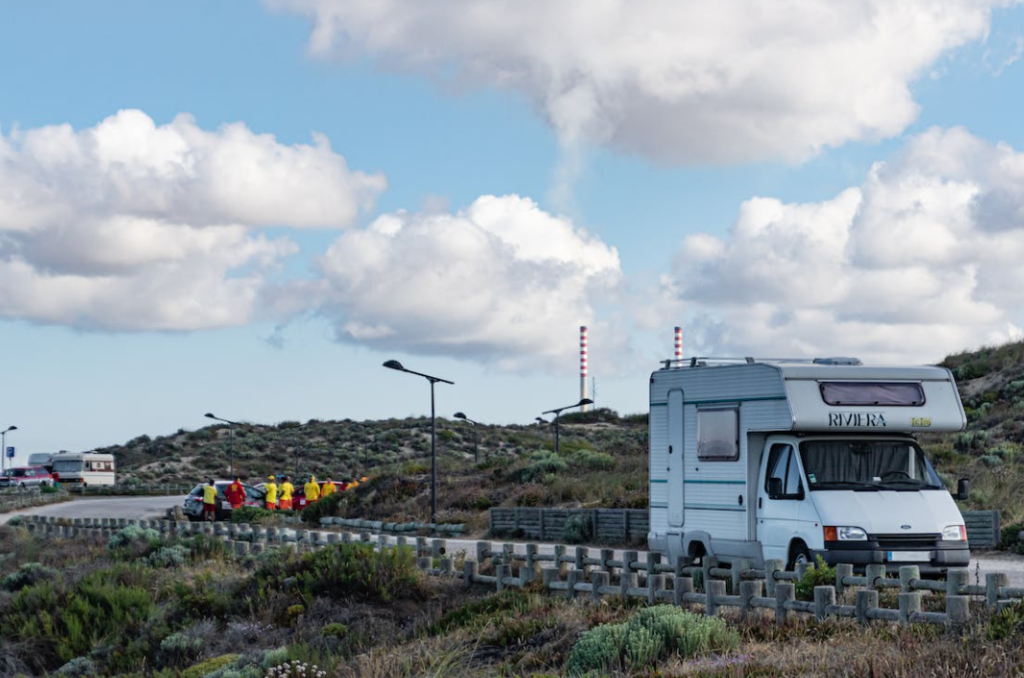
The idea of living off-grid, especially in an RV, has become increasingly popular in recent years. Many people are drawn to the idea of living a simpler life, away from the hustle and bustle of city living. But why exactly do people want to RV off-grid? There are several reasons why this lifestyle is so appealing.
The RVing off-grid in a car offers a unique and adventurous way to travel, allowing travelers to explore the world on their own terms. One of the main reasons people choose to RV off-grid is the sense of freedom it provides. When you’re living off the grid, you’re not tied down to a specific location or schedule. You can travel wherever you want, whenever you want, and stay for as long as you want. This allows you to explore new places, meet new people, and experience new things that you wouldn’t be able to do if you were tied to a traditional home or job.
Another reason people choose to RV off-grid is the ability to save money and finance yourself more. When you’re living off-grid, you’re not paying for rent or a mortgage, and your utility bills are significantly lower. You’re also not spending money on eating out as much since you’re cooking your own food. This can add up to substantial savings over time, allowing you to live a more financially independent lifestyle.
Living off-grid also provides a sense of self-sufficiency. When you’re living in an RV, you’re responsible for everything, from your water supply to your waste management. This forces you to become more self-reliant and to learn new skills, such as how to fix your own plumbing or how to generate your own electricity. Many people find that living off the grid gives them a sense of empowerment and pride in their ability to take care of themselves.
Another reason people choose to RV off-grid is to be closer to nature. Living in an RV allows you to be immersed in the great outdoors, and many people find this to be incredibly therapeutic. Whether it’s hiking through the mountains, swimming in a lake, or simply sitting outside and enjoying the scenery, living off-grid allows you to connect with nature in a way that’s not possible when you’re living in a city or suburb.
Living off-grid also allows you to reduce your environmental impact. When you’re living in an RV, you’re using fewer resources and generating less waste than you would in a traditional home. You’re also more likely to use renewable energy sources, such as solar power, which reduces your carbon footprint. Many RVs have the capacity to generate their own electricity through solar panels or generators, making them an excellent fit for electric vehicle (EV) that can be charged using renewable energy sources. By embracing this lifestyle, individuals can reduce their carbon footprint and decrease their reliance on traditional fossil fuels. Additionally, many RV parks and campsites now offer electric vehicle charging stations, allowing RVers to recharge their EVs while enjoying the comforts of their mobile home. For many people, this is an important part of their decision to live off-grid, as they want to do their part to protect the planet.
Living off-grid also provides a sense of community. While it may seem counterintuitive, living off the grid can actually bring people closer together. When you’re living in an RV, you’re more likely to interact with your neighbors and fellow travelers. This can lead to forming friendships and a sense of camaraderie that’s not always present in traditional neighborhoods.
Of course, living off-grid is not without its challenges. One of the biggest challenges is finding a suitable location to park your RV. Many areas have restrictions on where you can park, and finding a place that’s both legal and safe can be difficult. You also have to be prepared to deal with the realities of living in a small space, such as limited storage and living quarters.
Living off-grid also requires a certain level of adaptability. You have to be willing to adjust your lifestyle to accommodate the limitations of living in an RV. This can mean being more mindful of your water and energy usage, and learning to live with fewer luxuries than you might be used to. It can also mean being flexible with your plans, as weather, mechanical issues, and other factors can impact your ability to travel or stay in one place.
Despite these challenges, many people find that the rewards of living off-grid far outweigh the difficulties. Whether it’s the freedom to travel, the ability to save money, the sense of self-sufficiency, or the opportunity to be closer to nature, living off-grid in an RV provides a unique and fulfilling lifestyle.
For those who are interested in trying out the off-grid RV lifestyle, there are a few things to keep in mind. First, it’s important to research the legalities of parking an RV in different areas, as well as any restrictions or regulations that may apply. It’s also important to invest in a reliable and well-maintained RV, as well as the necessary equipment to generate power and manage waste. Additionally, it can be helpful to connect with other off-grid RVers to learn from their experiences and get tips and advice.
Ultimately, the decision to live off-grid in an RV is a personal one that requires careful consideration of the challenges and rewards. However, for many people, the opportunity to live a simpler, more self-sufficient, and more fulfilling life is well worth the effort.